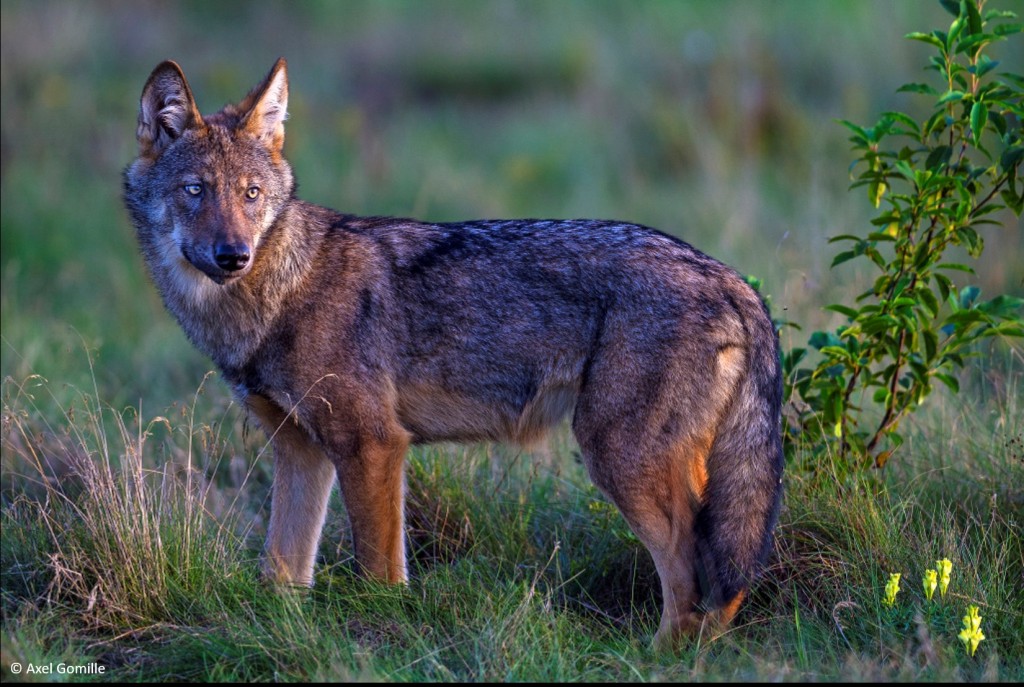
diversity of emotions.
Photo credit: Axel Gomille.
By U. Arbieu, L. Taysse, O. Gimenez, L. Lehnen, and T. Mueller.
This study explores the diversity of emotions expressed by French inhabitants of rural regions towards situations of encounters with wild wolves. Wolves have started recolonizing France since 1992 and coexistence with this large carnivore can be problematic and generate heated debates. Although the emotional aspect of carnivore conservation has long been recognized, they have been little studied. We therefore investigated the range of emotions expressed in reaction to short video clips extracted from Youtube, depicting six different types of encounters, such as seeing a wolf on a hiking path, a pack of wolves on the road, or a wolf roaming around a cattle enclosure.
Surprise, interest and fear were the most expressed emotions, which highlights that even in rural landscapes and in a process of dynamic recolonization in France, people would not expect to encounter wolves in the wild. Taken together, the diversity of emotions expressed did not depict a particularly hostile atmosphere towards the wolf in French rural landscapes. These results call for better understanding of the mismatch between rural inhabitants’ emotions, which were quite diverse, and the generally negative news narratives about large carnivores, to pave the way for evidence-based carnivore conservation.
Furthermore, emotions explained 28% of the variation in attitudes towards wolves, with anger and joy having the strongest influence on attitudes. Fear, despite being a common focus of research, had only half the impact of joy on attitudes. Anger’s threefold impact on attitudes compared to fear highlights the need for addressing perceived injustices, particularly related to potential livestock depredation. Finally, as emotions are powerful drivers of decision-making in wildlife conservation, we suggest a paradigm shift by not only mitigating irrational fear of these animals but also promoting positive emotions like joy and interest to reflect the actual costs and benefits of sharing landscapes with recolonizing carnivores.